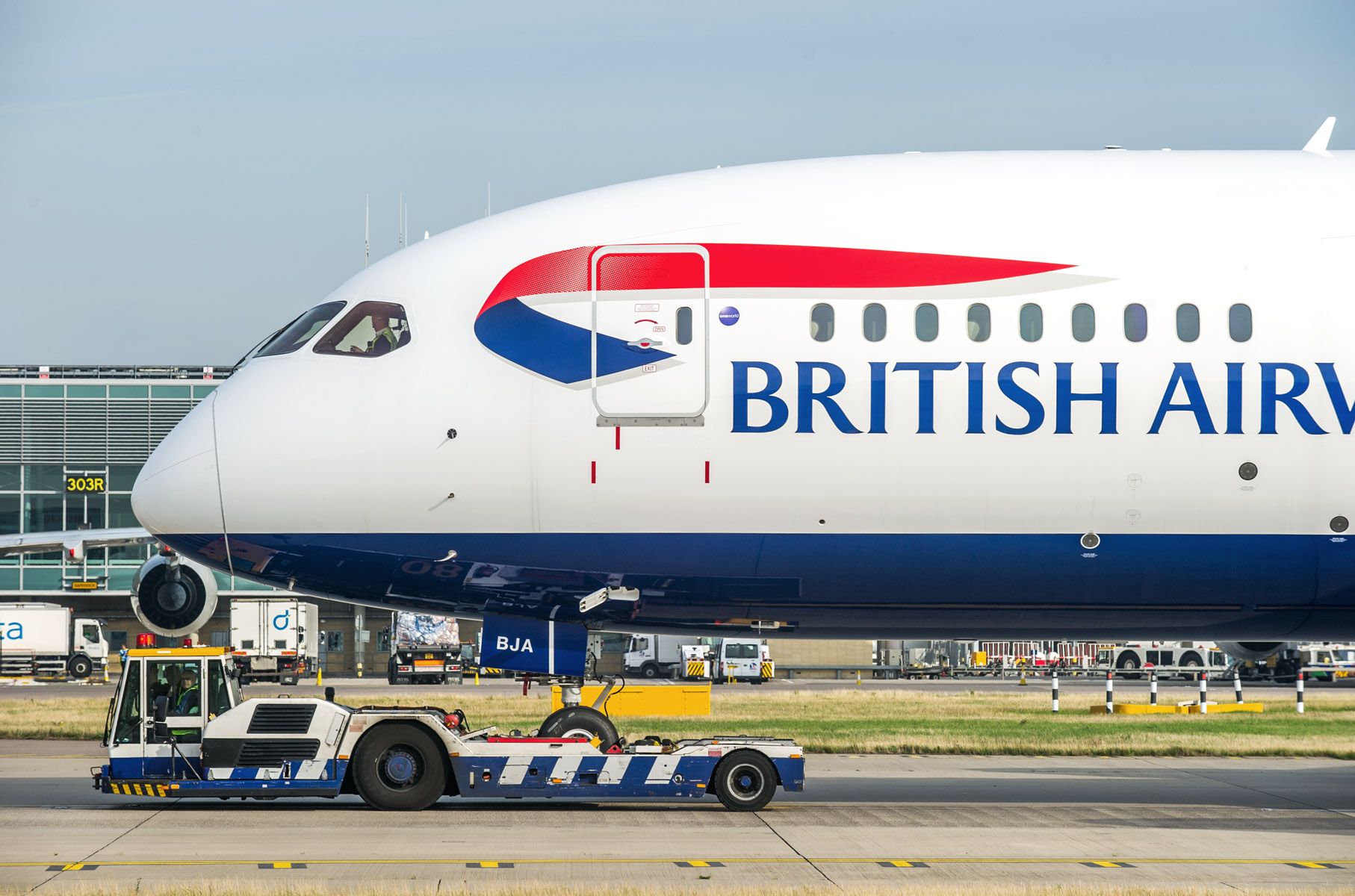These numerous delays on American Airlines aren’t winning it any new fans
Skift Take
Rick Seaney flew American Airlines in the past week and none of his flights were on time.
One flight was canceled, one was late by about 30 minutes, and the other two had delays of over two hours, said Seaney, founder of FareCompare.com, which tracks airline ticket prices.
Seaney and thousands of other passengers on American flights have found themselves stuck in the middle of a dispute between the Fort Worth-based carrier and its pilots.
“From a customer perspective, all you really want is to leave on time and arrive on time and have your baggage be there when you land,” he said.
But for the past two weeks, that hasn’t happened for many American customers.
American says pilots are intentionally delaying flights by writing up last-minute maintenance items before departure or taxiing slowly, claims the airline, which in turn threatened to take its union to court to stop illegal work actions. The Allied Pilots Association says it is not behind the work slowdown. On Thursday, union President Keith Wilson told members to “cease immediately” any alleged behavior.
With one-third to one-half of American’s daily flights arriving late, industry analysts are starting to compare American’s pilot dispute to that of Eastern Airlines, which ended up liquidating in 1991 after years of labor issues and financial mismanagement.
Passengers have turned to Twitter and other social media to complain about long delays and cancellations, with some swearing they will never fly American again.
“Service is what airlines sell and if that becomes that much more difficult, that much more of a burden on their passengers, they are going to continue to lose customers,” said Mike Davis, a business professor at Southern Methodist University’s Cox School of Business.
The damage done
Earlier this month, American announced the work rule changes it was going to impose on pilots after the bankruptcy judge allowed the carrier to reject its labor agreement.
And then, the delays began.
The carrier trimmed its September and October capacity by 1 to 2 percent, blaming more flight crews calling in sick than anticipated and an increase in maintenance requests before departure.
“This conduct is also seriously misguided, as it threatens the financial and operational prospects of the company just as [it] is in the process of righting itself after a decade of losses and competitive disadvantages,” Denise Lynn, American vice president of people, wrote union leaders Wednesday.
Lynn also said that American will go to a federal court to get an injunction if the slowdown continues.
The APA said it felt “sucker punched” by Lynn’s letter and plans to reconvene its board of directors for a meeting Tuesday.
American’s pilots are currently conducting a strike vote, even though the union cannot legally strike under the Railway Labor Act.
Wilson said legal counsel has advised the union that American would likely be successful if the carrier asked a federal court to issue an injunction to stop the slowdown.
“Based on the recent experiences of other pilot groups, it’s clear that we would be seriously disadvantaged if we are forced to conduct ourselves under a restraining order,” the union’s Wilson said. “There is no strategic advantage whatsoever for APA to be placed in that situation.”
Since American began implementing work rule changes Sept. 16, American’s on-time performance has averaged 51 percent compared with the industry’s 88 percent, according to Jason Goldberg, a partner at The Leading Edge Aviation Consulting Group. Cancellations are up an average of 7 percent in that same time period.
“While it is likely that injunctive relief would ease American’s operational problems in the short term, it is equally likely that this measure would permanently eliminate this management team’s ability to obtain a consensual agreement with APA,” Goldberg warned in a research note Thursday.
Picking other airlines
“Delayed at LGA on @AmericanAir because of no water to wash hands. Now land 2 min before my connection,” a passenger self-identified as nmccrawf7 tweeted Friday morning.
Mccrawf7 and others have used social media to vent their frustration and to tell American and its pilots what they think about the dispute. One traveler tweeted that he had missed several business meetings because of six different delayed flights.
“If you’re a business traveler and you need to be at a meeting at 10 a.m., are you going to fly that morning and risk it?” Seaney said.
“When it comes to me not making a meeting, that’s your bread and butter for business travelers and that’s where the airline starts to get hit in the revenue.”
American is fortunate that the labor dispute is occurring in September during a slower travel period as opposed to the busy holiday travel season, industry analysts said. But if the slowdown continues another two weeks, leisure travelers purchasing Thanksgiving and Christmas tickets are likely to choose a carrier other than American.
“People do book away and what you have to do to get them back is you have to lower your fares enormously,” said airline consultant Darryl Jenkins. “It’s time for both sides to work something out because travelers are being hurt by this.”
Like Eastern?
Eastern Airlines was in financial trouble for much of the 1980s. When the machinists union decided to strike in 1989, pilots and flight attendants also chose to not cross the picket line.
Then-chief executive Frank Lorenzo hired replacements to run the airline while it was in bankruptcy but continued to lose money until, finally. in 1991, the airline shut down and liquidated.
While industry analysts say American’s pilot dispute hasn’t reached Eastern’s level of animosity, a significant amount of distrust exists between management and the union.
“The dispute here seems to now be going beyond economic considerations to the emotional level, which is always dangerous since rationality for all parties can become secondary as was in the case of Eastern,” Maxim Group analyst Ray Neidl wrote in a note to investors Wednesday.
While the American situation is nowhere near Eastern’s labor-management toxicity, Neidl said, “we do remain concerned that it could escalate in what is a weak economy and if not resolved could lead to a possible further weakening and eventual liquidation of the company.”
Unlike at Eastern, analysts think American’s unsecured creditors committee may become more involved if the labor situation deteriorates even further.
“The creditors will not allow an Eastern situation because that was a piece-meal liquidation where there were not high recovery values realized by the creditors and it was a very, very bad thing for employees,” said Ken Malek, of Conway MacKenzie, a financial turnaround and crisis management firm. “The airline is going to start suffering revenue-wise, which will make it even more difficult to come to terms with the employees.”
American’s parent company, AMR Corp., is required to file monthly financial reports with the Bankruptcy Court. On Thursday, it posted an $82 million loss for August. September results, which could include the impact of cancellations and flight delays, will be reported in late October.
Referring to the liquidation of Eastern, Wilson said in an interview Friday: “We are married to the corporation so we certainly don’t want to go that route.”
That said, the union leader added: “The lack of trust that we have for the corporation’s management decisions and their ability to understand the concerns of the general employee population, and most definitely the pilot population, makes it very tough for us to work with them.”
(c)2012 the Fort Worth Star-Telegram. Distributed by MCT Information Services ![]()




